Die Walküre, LPO, Jurowski, RFH review - love shines out | reviews, news & interviews
Die Walküre, LPO, Jurowski, RFH review - love shines out
Die Walküre, LPO, Jurowski, RFH review - love shines out
A fast-beating heart serves Wagner's second Ring opera well
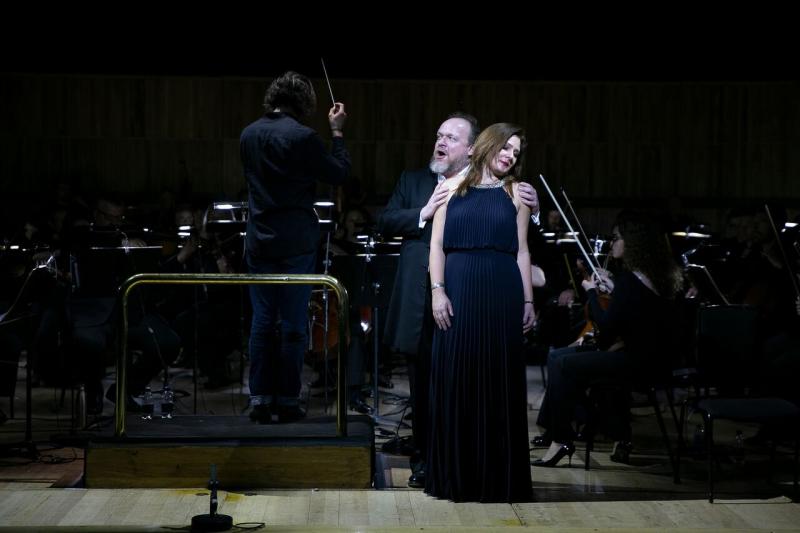
Harpers on the undeniably offensive aspect of Wagner the man might question attending a concert performance of his second Ring opera on World Holocaust Day. Fortunately there's nothing anti-semitic to be found anywhere in Die Walküre.
As did all the singers, to varying degrees. The fulcrum of the work, at a crucial point in a long middle act which Jurowski brilliant describes as "an Ibsen play put inside a Homer epic", comes when a passionate human love between chief god Wotan’s twin children by a mortal woman makes itself felt to his favourite warrior-maiden daughter Brünnhilde, the Valkyrie of the title and his personified conscience. She comes to tell outcast hero Siegmund he must die in combat and follow her to Valhalla, but is convinced by his refusal to leave his sister Sieglinde behind that she has to try and save him. The so-called Todesverkundigung or Annunciation of Death was the point in this performance where profundity hit for the first time. A completely silent and intense audience helped – Wagnerians tend to book early – while Jurowski’s subtle atmospheric force field allowed two striking singers, heroic tenor Stuart Skelton and a dramatic soprano of striking stage presence, with exactly the “searing glance” needed for the supernatural Valkyrie, Svetlana Sozdateleva, to give of their vocal and dramatic best. 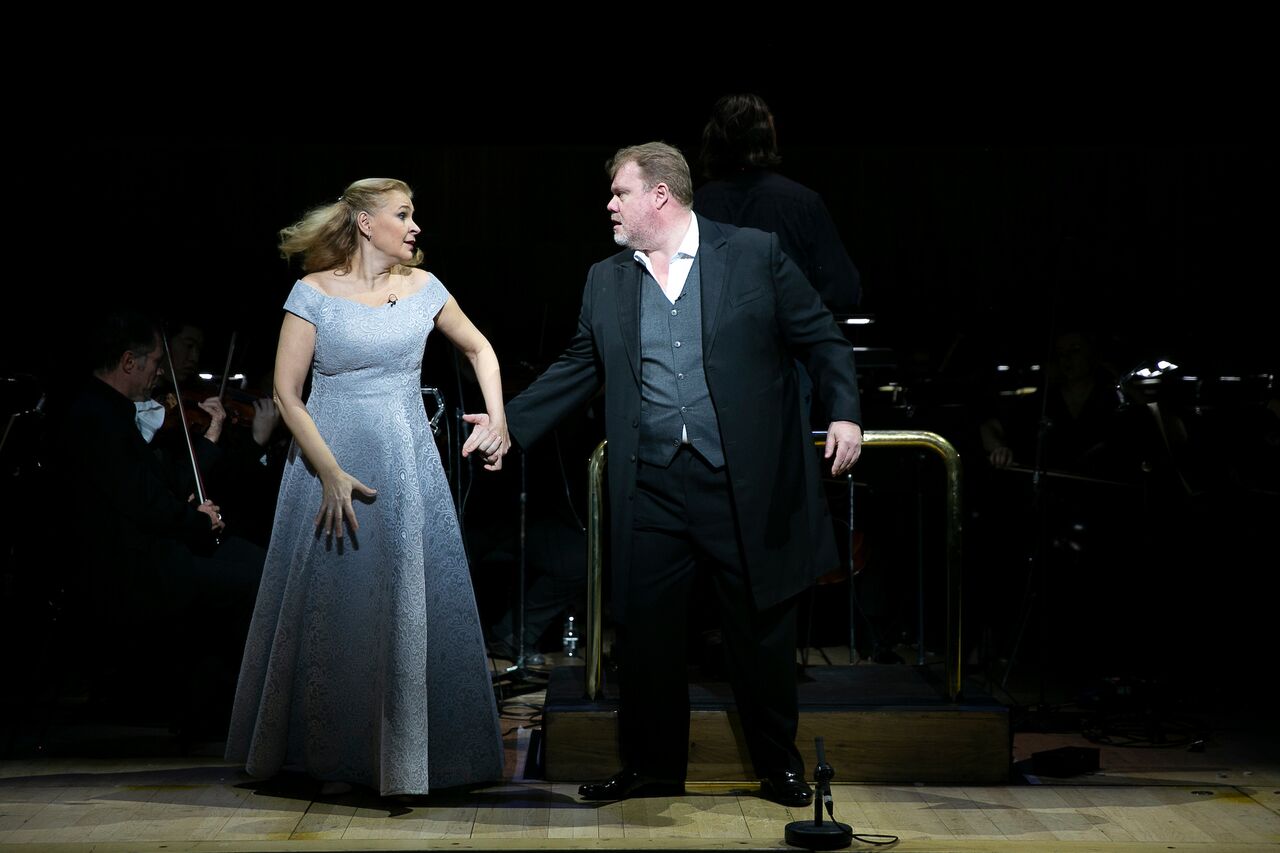 Act One, the first human love-drama of the Ring, had brought assurance of perfect phrasing from individual LPO players – outstanding clarinet and solo cello especially, shaped but not over-indulged by Jurowski – in the first half and some speedy eroticism in the second. Too fast, perhaps, for clear string articulation in Siegmund’s lyric apostrophe to spring and the very end, I thought. Skelton has to summon all his resources for the desperate cry to the father he knows only as Wälse, but no other Siegmund today can match him for an intelligent range of vocal colours and dramatic detail in the delivery of the text. Ruxandra Donose (pictured above with Skelton) is by no means the first mezzo Sieglinde, and it paid off; her presence was warm and telling, the top notes – there's only one note above the A all good mezzos should manage, a top A sharp (or B flat) in the third act – full and passionate when necessary.
Act One, the first human love-drama of the Ring, had brought assurance of perfect phrasing from individual LPO players – outstanding clarinet and solo cello especially, shaped but not over-indulged by Jurowski – in the first half and some speedy eroticism in the second. Too fast, perhaps, for clear string articulation in Siegmund’s lyric apostrophe to spring and the very end, I thought. Skelton has to summon all his resources for the desperate cry to the father he knows only as Wälse, but no other Siegmund today can match him for an intelligent range of vocal colours and dramatic detail in the delivery of the text. Ruxandra Donose (pictured above with Skelton) is by no means the first mezzo Sieglinde, and it paid off; her presence was warm and telling, the top notes – there's only one note above the A all good mezzos should manage, a top A sharp (or B flat) in the third act – full and passionate when necessary.
Total Wagnerian perfection in a nutshell came from Stephen Milling (pictured below), making his mark with huge authority as the brute husband who treats his wife as a chattel. But there were enough sympathetic lights in the voice to suggest that this leading Hunding and Hagen of our time might follow John Tomlinson’s lead and tackle Wotan. 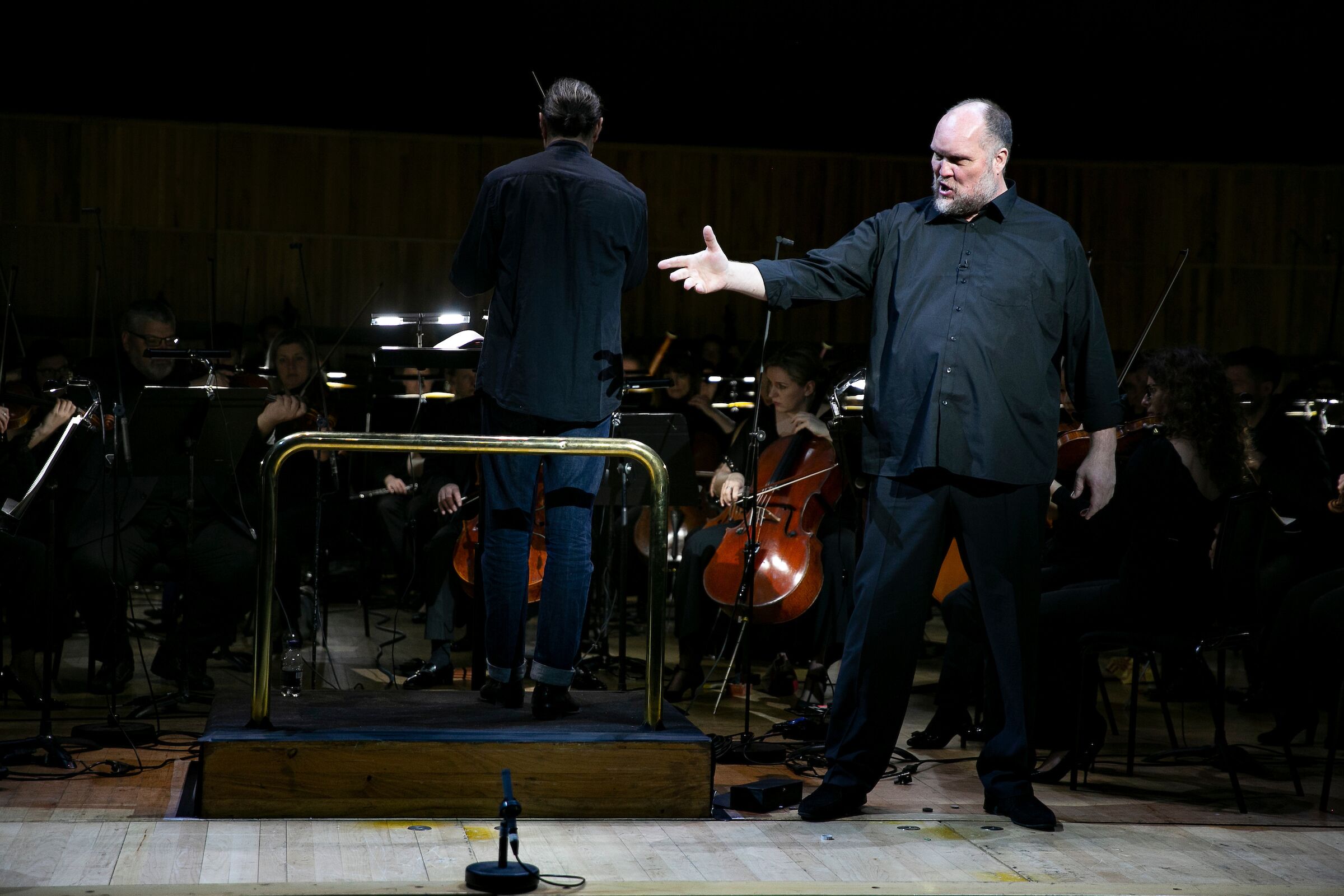 The eventual incumbent of this colossal role at relatively short notice, Markus Marquardt, is more baritone than bass, which meant that the lower reaches in which his huge Act Two monologue of past events begins could be lost. He may have had the manner of a peevish sergeant major rather than a cosmically weary-furious god, but the burnished upper register and some fine phrasing were world-class in the final confrontation with his disobedient daughter. Many Wotans have tired vocally at this point, but Marquardt crowned his achievement with the longest line of all right at the end of his contribution. The confrontation with propriety-obsessed wife Fricka passed in a flash, due in no small measure to the vibrant delivery of Claudia Manke (pictured below) and the positive side of Jurowski’s concern to keep everything on the move.
The eventual incumbent of this colossal role at relatively short notice, Markus Marquardt, is more baritone than bass, which meant that the lower reaches in which his huge Act Two monologue of past events begins could be lost. He may have had the manner of a peevish sergeant major rather than a cosmically weary-furious god, but the burnished upper register and some fine phrasing were world-class in the final confrontation with his disobedient daughter. Many Wotans have tired vocally at this point, but Marquardt crowned his achievement with the longest line of all right at the end of his contribution. The confrontation with propriety-obsessed wife Fricka passed in a flash, due in no small measure to the vibrant delivery of Claudia Manke (pictured below) and the positive side of Jurowski’s concern to keep everything on the move. 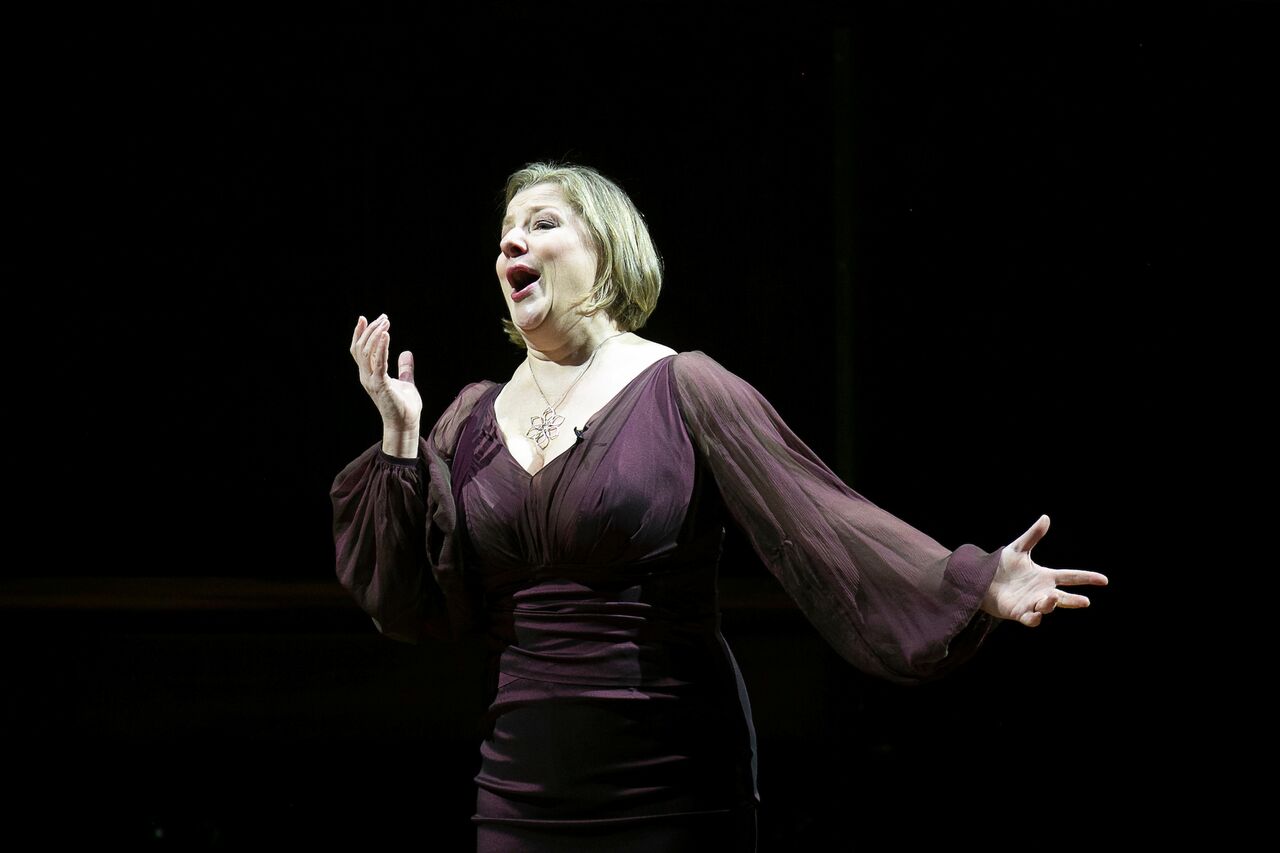 Under the directorial supervision of Jurowski, with sparse but poetic back-projections by Pierre Martin, men, women and gods took their places both at the front of the stage and around the organ console behind an orchestra placed – usefully for perfect balance –on the flat stage, double basses centre back. The upper level may have been useful to suggest mid-air Valkyrie action, but it robbed all the “Hoiotoho” battle cries of their full flaming impact. Opera North’s concert staging in the same hall may have been more static, and too uniformly out-front, but it proved that there’s nothing more thrilling than eight, then ten, female voices singing right at you at full pelt. Jurowski’s Valkyries couldn’t be sufficiently heard to predict future Brünnhildes (there was one already present, in fact, Alwyn Mellor, kicking off as Gerhilde), but still the orchestral aspect of the Ride was – rightly – more air than earth, the climax truly resplendent. Then there was slight regret as Donose couldn't quite put across the full spendour of Sieglinde's apostrophe to Brünnhilde as "most glorious of women" from that distance, though she sang it superbly (pictured below, Sozdateleva and Donose flanked by Sinéad Campbell-Wallace as Helmwige and Susan Platts as Schwertleite).
Under the directorial supervision of Jurowski, with sparse but poetic back-projections by Pierre Martin, men, women and gods took their places both at the front of the stage and around the organ console behind an orchestra placed – usefully for perfect balance –on the flat stage, double basses centre back. The upper level may have been useful to suggest mid-air Valkyrie action, but it robbed all the “Hoiotoho” battle cries of their full flaming impact. Opera North’s concert staging in the same hall may have been more static, and too uniformly out-front, but it proved that there’s nothing more thrilling than eight, then ten, female voices singing right at you at full pelt. Jurowski’s Valkyries couldn’t be sufficiently heard to predict future Brünnhildes (there was one already present, in fact, Alwyn Mellor, kicking off as Gerhilde), but still the orchestral aspect of the Ride was – rightly – more air than earth, the climax truly resplendent. Then there was slight regret as Donose couldn't quite put across the full spendour of Sieglinde's apostrophe to Brünnhilde as "most glorious of women" from that distance, though she sang it superbly (pictured below, Sozdateleva and Donose flanked by Sinéad Campbell-Wallace as Helmwige and Susan Platts as Schwertleite).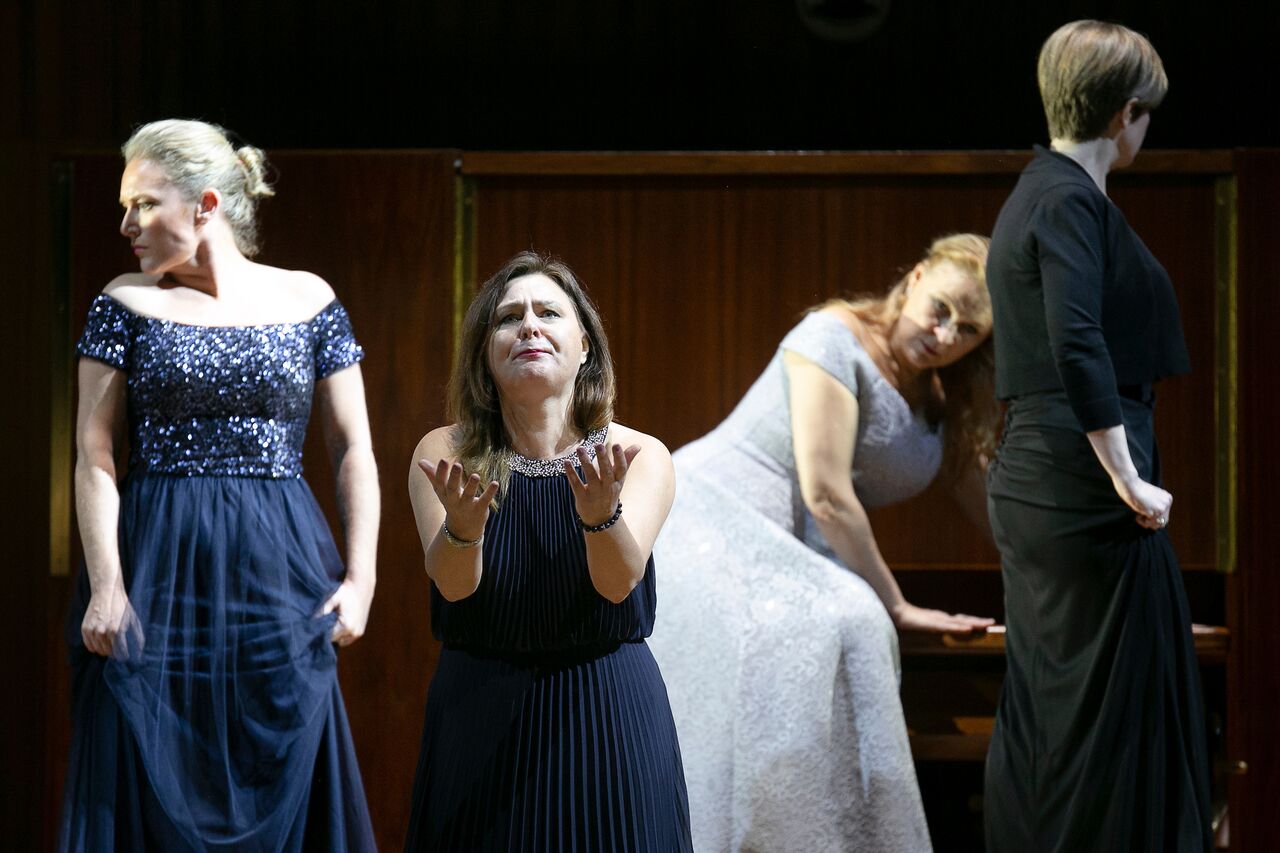
What genius when Wagner melts down the fury of the act’s first half to leave a handful of woodwind sorrowing with Brünnhilde as she awaits her punishment. Sozdateleva kept the meaning and the anguish at full intensity even when the voice didn’t always quite do what she wanted, technique-wise; her charisma carried all before it. The spare but perfect use of two chairs on either side of Jurowski let us see how one woman tyrannized by a man mirrors the other, Sieglinde in Act Two, in sleep. But of course Brünnhilde wins her victory from the ultimately grief-stricken, tender father, crowning Wagner’s strong feminist sympathies to be worked through in the next two operas. And though again Jurowski chose to take the sleep music a little fast, for my taste at least, the orchestral magic was as luminous as it can be, with spellbindingly soft descending chords to preface it. A year seems a long time to wait for Jurowski’s Siegfried. Let’s hope in that time he changes his mind about the Ring opera he so far likes least. You can be sure that whatever his attitude it will all be beautifully prepared and lustrously executed.
- Read more opera reviews on theartsdesk
- David Nice's 10-week Opera in Depth course on Die Walküre at Pushkin House is now on its third Monday. Not too late to join if you want to catch Acts 2 and 3. He is also giving a three-day course on the opera in September for the Wagner Society of Scotland.
rating
Share this article
Add comment
The future of Arts Journalism
You can stop theartsdesk.com closing!
We urgently need financing to survive. Our fundraising drive has thus far raised £49,000 but we need to reach £100,000 or we will be forced to close. Please contribute here: https://gofund.me/c3f6033d
And if you can forward this information to anyone who might assist, we’d be grateful.

Subscribe to theartsdesk.com
Thank you for continuing to read our work on theartsdesk.com. For unlimited access to every article in its entirety, including our archive of more than 15,000 pieces, we're asking for £5 per month or £40 per year. We feel it's a very good deal, and hope you do too.
To take a subscription now simply click here.
And if you're looking for that extra gift for a friend or family member, why not treat them to a theartsdesk.com gift subscription?
more Opera
 La bohème, Opera North review - still young at 32
Love and separation, ecstasy and heartbreak, in masterfully updated Puccini
La bohème, Opera North review - still young at 32
Love and separation, ecstasy and heartbreak, in masterfully updated Puccini
 Albert Herring, English National Opera review - a great comedy with depths fully realised
Britten’s delight was never made for the Coliseum, but it works on its first outing there
Albert Herring, English National Opera review - a great comedy with depths fully realised
Britten’s delight was never made for the Coliseum, but it works on its first outing there
 Carmen, English National Opera review - not quite dangerous
Hopes for Niamh O’Sullivan only partly fulfilled, though much good singing throughout
Carmen, English National Opera review - not quite dangerous
Hopes for Niamh O’Sullivan only partly fulfilled, though much good singing throughout
 Giustino, Linbury Theatre review - a stylish account of a slight opera
Gods, mortals and monsters do battle in Handel's charming drama
Giustino, Linbury Theatre review - a stylish account of a slight opera
Gods, mortals and monsters do battle in Handel's charming drama
 Susanna, Opera North review - hybrid staging of a Handel oratorio
Dance and signing complement outstanding singing in a story of virtue rewarded
Susanna, Opera North review - hybrid staging of a Handel oratorio
Dance and signing complement outstanding singing in a story of virtue rewarded
 Ariodante, Opéra Garnier, Paris review - a blast of Baroque beauty
A near-perfect night at the opera
Ariodante, Opéra Garnier, Paris review - a blast of Baroque beauty
A near-perfect night at the opera
 Cinderella/La Cenerentola, English National Opera review - the truth behind the tinsel
Appealing performances cut through hyperactive stagecraft
Cinderella/La Cenerentola, English National Opera review - the truth behind the tinsel
Appealing performances cut through hyperactive stagecraft
 Tosca, Royal Opera review - Ailyn Pérez steps in as the most vivid of divas
Jakub Hrůša’s multicoloured Puccini last night found a soprano to match
Tosca, Royal Opera review - Ailyn Pérez steps in as the most vivid of divas
Jakub Hrůša’s multicoloured Puccini last night found a soprano to match
 Tosca, Welsh National Opera review - a great company reduced to brilliance
The old warhorse made special by the basics
Tosca, Welsh National Opera review - a great company reduced to brilliance
The old warhorse made special by the basics
 BBC Proms: The Marriage of Figaro, Glyndebourne Festival review - merriment and menace
Strong Proms transfer for a robust and affecting show
BBC Proms: The Marriage of Figaro, Glyndebourne Festival review - merriment and menace
Strong Proms transfer for a robust and affecting show
 BBC Proms: Suor Angelica, LSO, Pappano review - earthly passion, heavenly grief
A Sister to remember blesses Puccini's convent tragedy
BBC Proms: Suor Angelica, LSO, Pappano review - earthly passion, heavenly grief
A Sister to remember blesses Puccini's convent tragedy
 Orpheus and Eurydice, Opera Queensland/SCO, Edinburgh International Festival 2025 review - dazzling, but distracting
Eye-popping acrobatics don’t always assist in Gluck’s quest for operatic truth
Orpheus and Eurydice, Opera Queensland/SCO, Edinburgh International Festival 2025 review - dazzling, but distracting
Eye-popping acrobatics don’t always assist in Gluck’s quest for operatic truth

Comments
“Ruxandra Donose (pictured
OK, there are other ways to
OK, there are other ways to tell me that. I'll adjust.